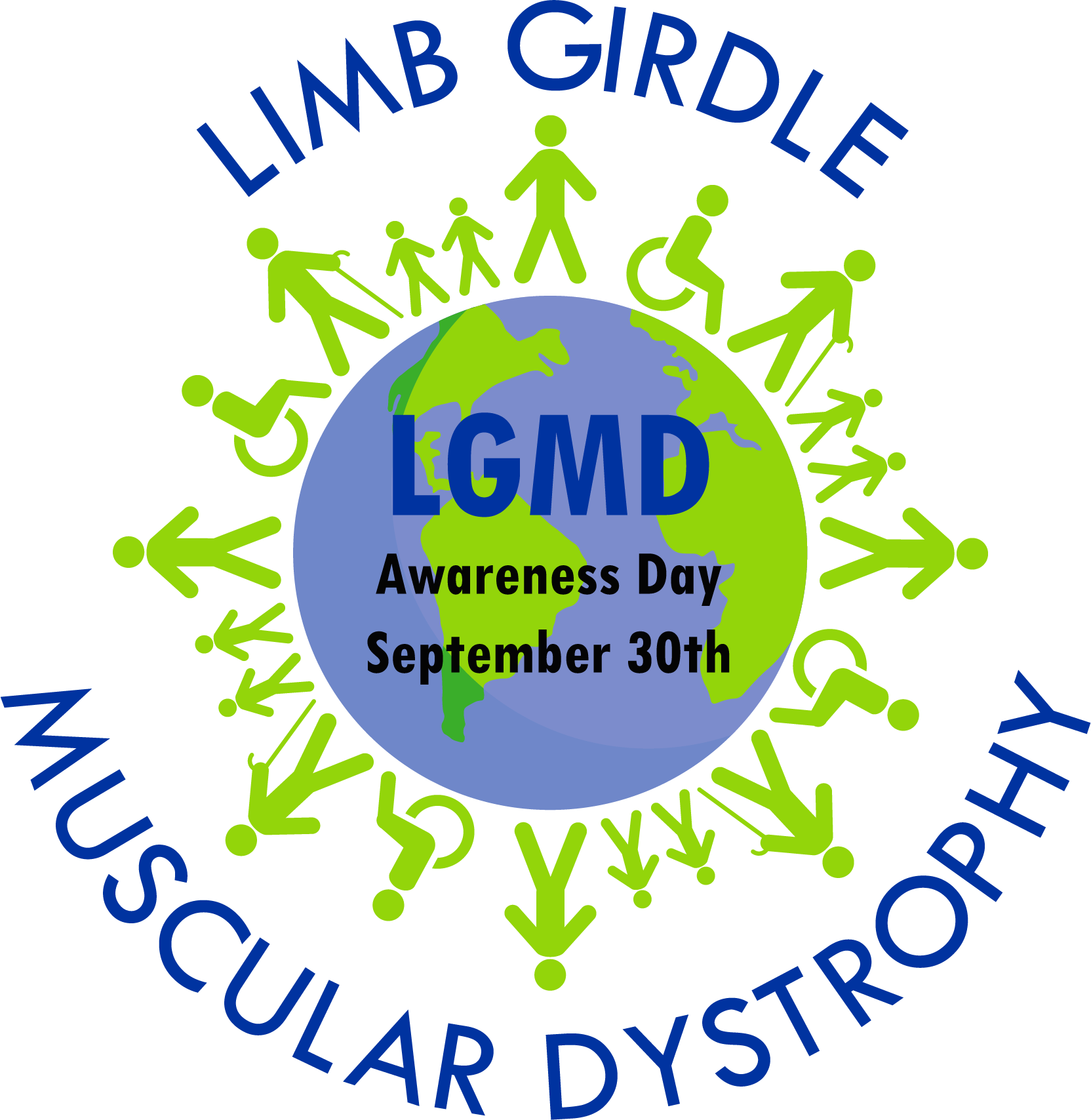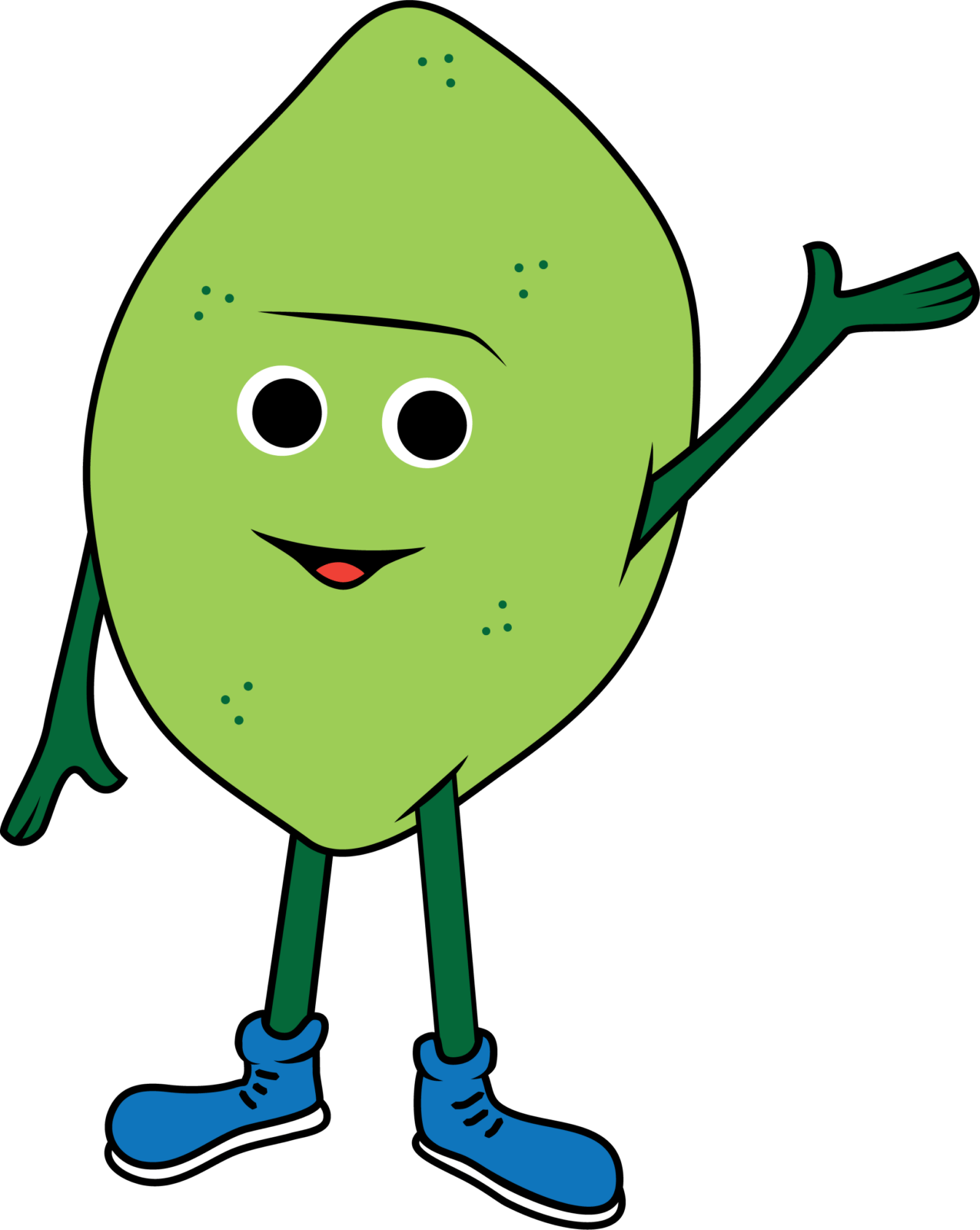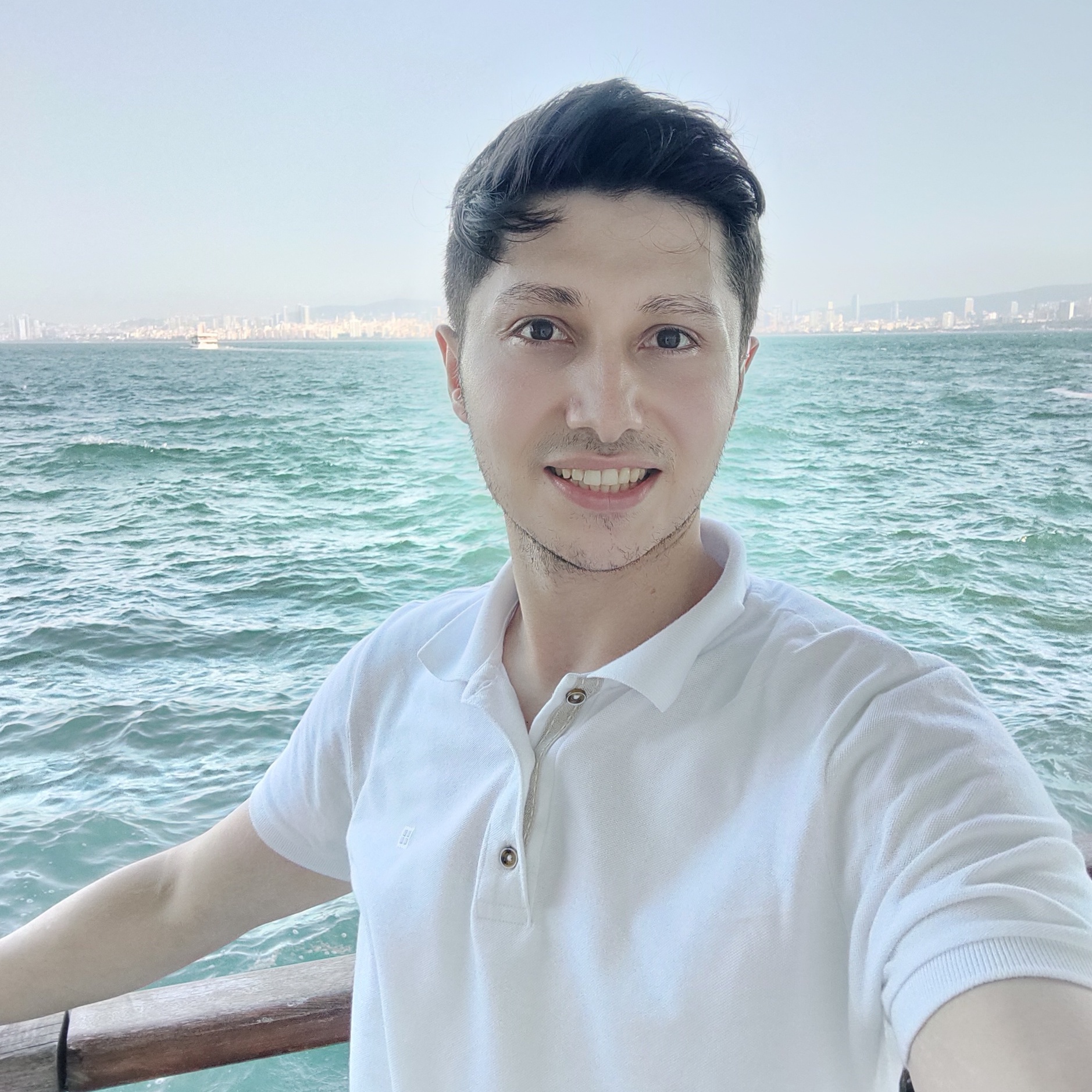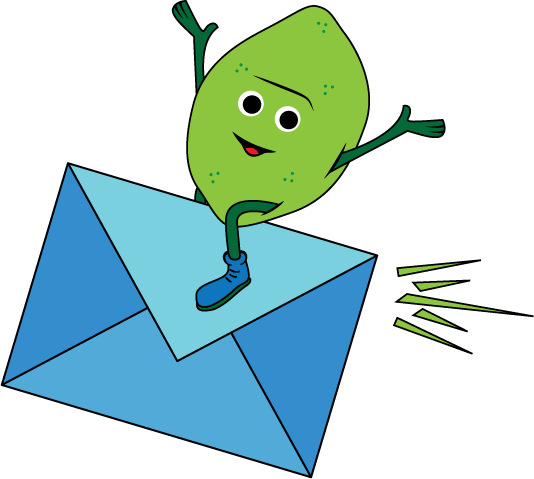INDIVIDUAL WITH LGMD: Rosamund
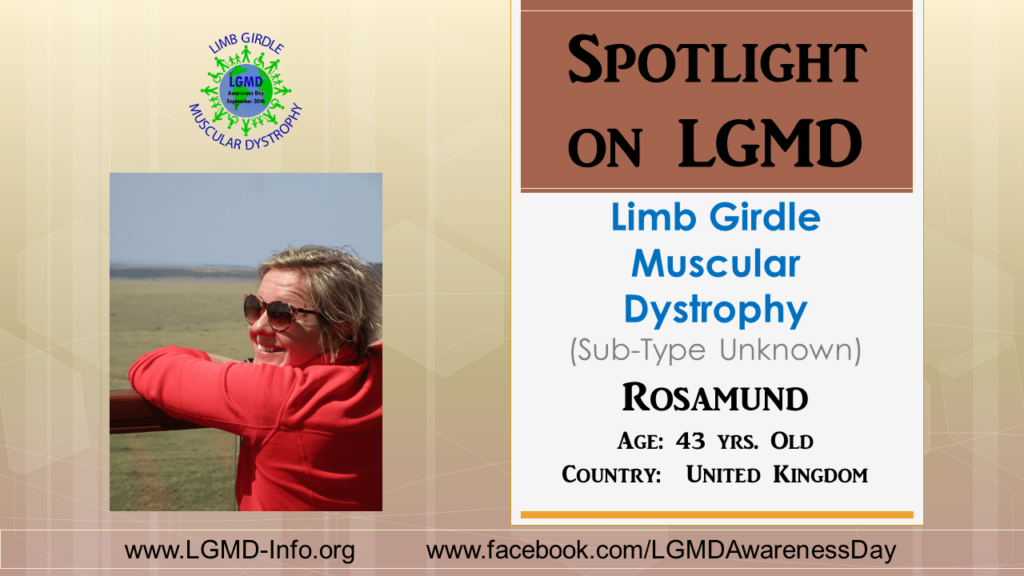
LGMD “SPOTLIGHT INTERVIEW”
Name: Rosamund Age: 43 years old
Country: England UK
LGMD Sub-Type: Not known; I am still going through the tests with the John Walton Muscular Dystrophy Research Centre in Newcastle UK.
At what age were you diagnosed: Following a medical through work in February 2017 the doctor was concerned with my muscle function. The suggestion that it was a type of muscular dystrophy was made in January 2018 after paying to see a neurologist privately in London.
What were your first symptoms:
I have suffered lower back pain for as long as I can remember. I fractured my back (lumbar number 4) in my early 20’s whilst show jumping; I struggled with my left hip and suffered increasing lower back pain and knee pain post the incident. I was tripping and falling occasionally for no reason. All the specialist that I saw attributed the symptoms to my back fracture apart from a hip specialist I arranged to see privately. My hamstrings, adductors and quads had pretty much switched off. The physio team got them working again but no matter how hard I worked we were not able to build up the strength. It was at that point I was advised to see a neurologist.
Do you have other family members who have LGMD:
Not diagnosed. My full sister suffers with very mild weakness in her arms.
What do you find to be the greatest challenges in living with LGMD
I have always been very active and love to be busy. I used to always cut it fine to get somewhere.
The biggest challenge is not being able to move quickly, climb stairs and generally rush about.
If I am commuting and I need to keep up with the crowd, carry a bag or am very tired I have to use a walking stick which has took some getting used to. If I am honest I really hate it.
What is your greatest accomplishment:
From a young age I was keen to experience things and enjoy my life. I have travelled, worked in Uganda for a charity, played lots of sport and worked for the Olympic Delivery Authority in London building the 2012 games venues. I work in occupational health and safety and my time with the Olympic movement was the best and I am grateful at that time I had the energy and ability to do the commute and fully participate. Africa was an experience and a half; I don’t think I could do that now so my greatest achievement is getting on with my life, creating and taking opportunities. I am currently working on a major infrastructure project in the UK; I love major projects so getting to still do that and still horse ride (well sort of!) are accomplishments for me.
How has LGMD influenced you into becoming the person you are today:
I am still getting on with my life and creating opportunities but it’s different now. I used to be pretty fearless; however limited mobility, being unsteady at times and tired does affect confidence. That’s been tough to get my head round. When I was told it was probably a muscular dystrophy I cried in private every day for 6 months. The internet is an amazing resource but it can also be damaging. I could end up as I am now, a little worse or in a wheelchair on a respiratory with a pacemaker if I accepted all I was reading online. I didn’t tell a soul; I had no idea what to say or how to explain it. I was frightened I would lose my husband and my job. Who wants someone who can’t get about unaided especially in a construction environment?… I was facing a change I couldn’t control, I felt trapped and vulnerable.
I have learnt that you cannot control everything, to appreciate the here and now. I recall years ago taking a break to quickly walk my dog in-between working on the laptop. It was a standard Friday thing. Horse chores completed early morning, laptop on, quick whizz round the field at lunchtime. Laptop off about 6…glass of wine at 7! I don’t recall the scenery much or the stupid things my dog used to do other than they were stupid and normally involved me apologizing for him. I remember being glued to the phone during those walks. When I with my animals now I appreciate them, I appreciate the trees, the smells and the birds singing. I enjoy the here and now. I value the things I still have; my sight, my hearing and my sense of humor.
What do you want the world to know about LGMD:
I jokingly describe it as an inconvenient condition that means I have to eat less and miss out on the extra slice of cake. On a serious note its really crap; the brain is amazing but cruel. I sometimes somehow forget I have the condition and go to move and just crumple. Having to think about how you walk and move about is exhausting. Fortunately, I have lots of natural energy that gets me through most days.
If your LGMD could be “cured” tomorrow, what would be the first thing that you would want to do:
Always wanting to pack a day full of stuff it would start with the night before; I would dance all night and have a few too many. I would insist on walking back home (I am imagining my perfect day is during the British summer when we actually get a good day) via an Indian or Chinese restaurant.
After falling asleep on the sofa with the dog I would eventually wake up and head to bed; crawling up the stairs due to a hangover rather than a muscle wasting disease. I would probably take a cup of tea with me which would remain by the bed until morning.
I would be up and out for an early morning horse ride with friends; having a good canter up the nearest hill to clear my head. The next task would be a lovely long dog walk up the biggest hill I could find and a pub for hair of the dog if I can face it and lunch with my husband. By the afternoon I would be snuggled up on the sofa with a pot of tea and a ton of chocolate.
I would be tired because I had not had any sleep and a load of fresh air. That “good tired” feeling.
To read more “LGMD Spotlight Interviews” or to volunteer to be featured in an upcoming interview, please visit our website at: https://www.lgmd-info.org/spotlight-interviews

